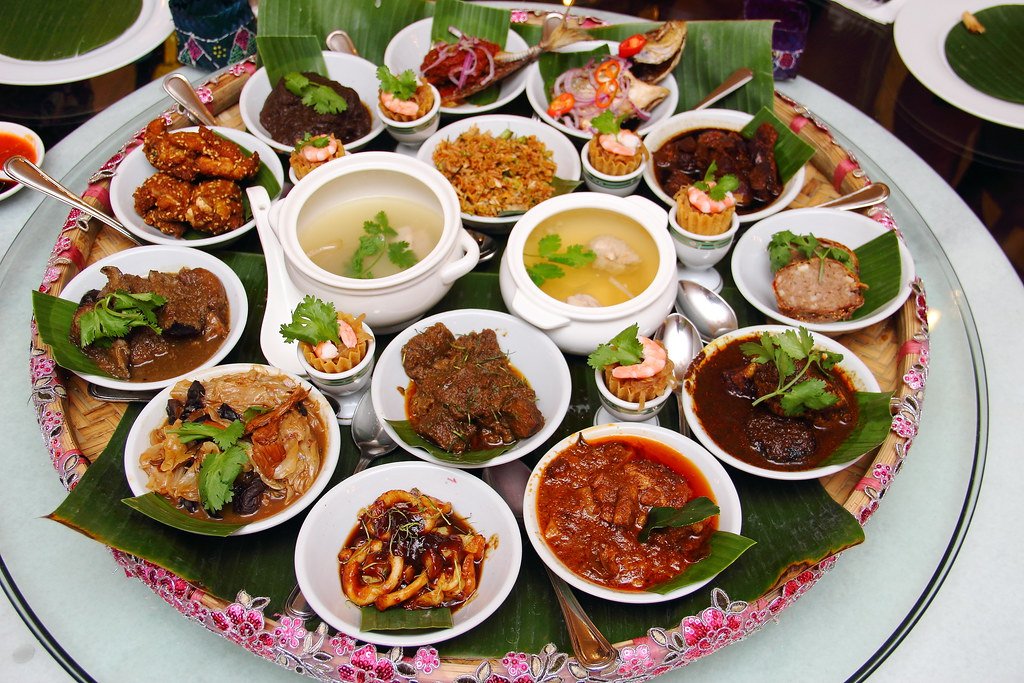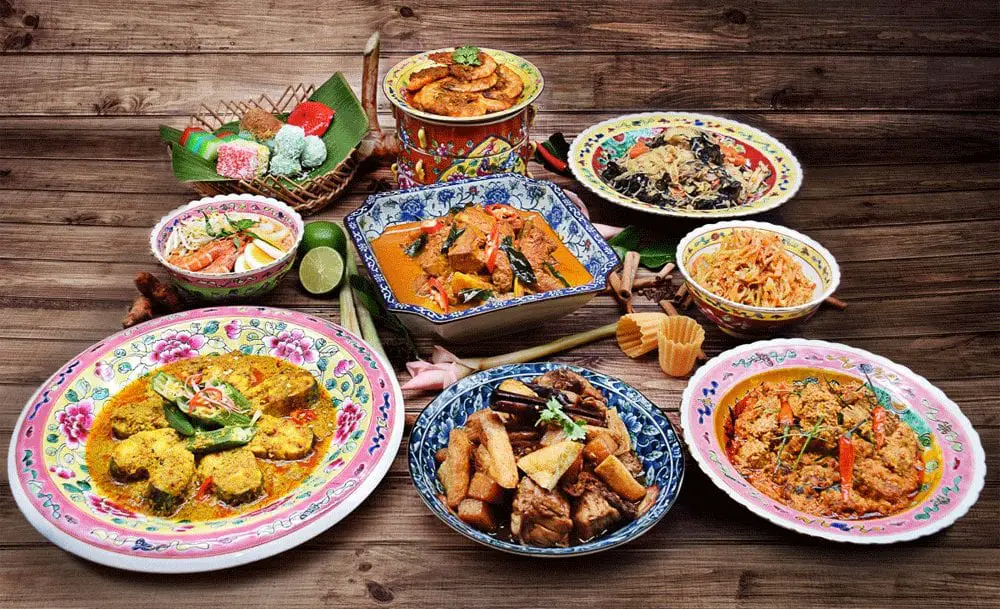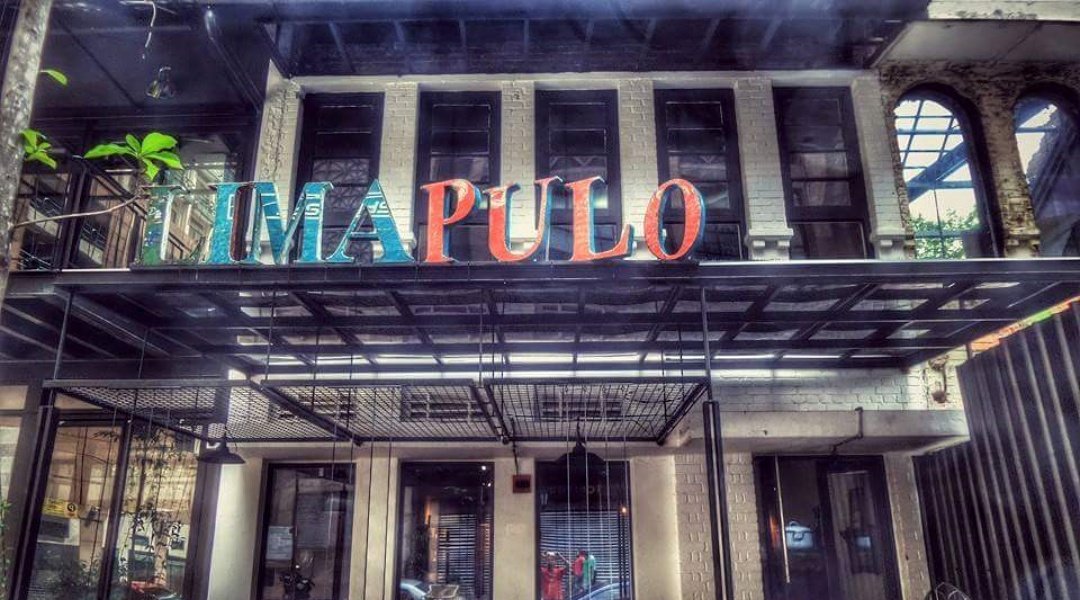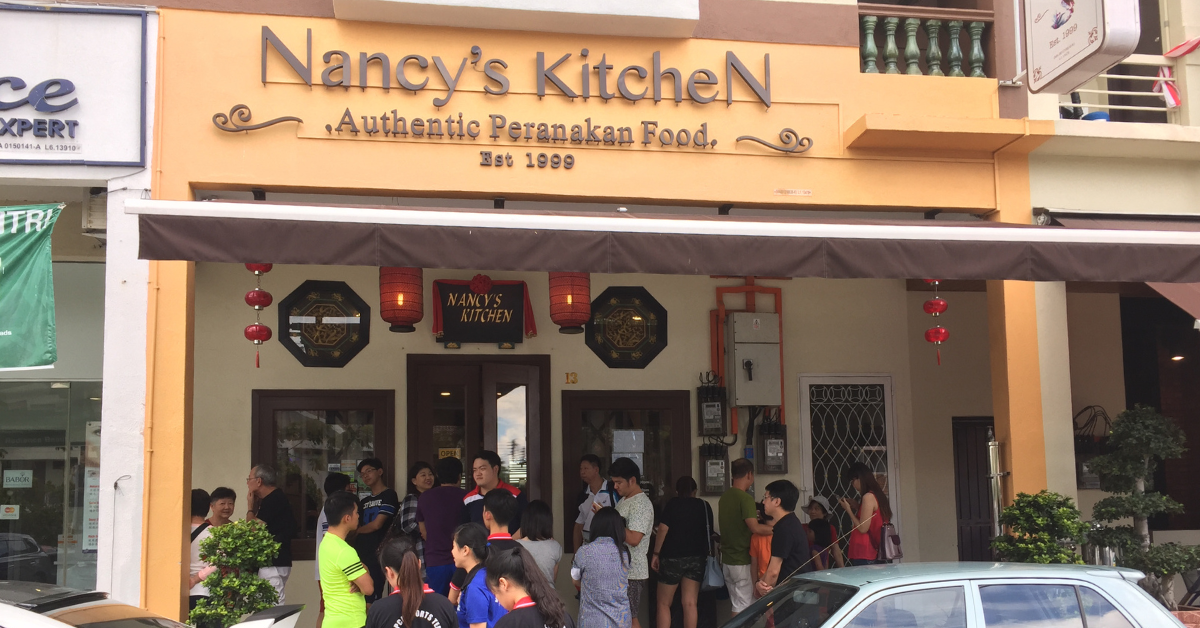
- arrow_back Home
- keyboard_arrow_right Food & Drink
Nyonya Food: A Culinary Journey Through Heritage and Flavors of Malaysia
Food & Drink 24 Ali April 28, 2025

Table of Contents
ToggleNyonya Food: A Culinary Journey Through Heritage and Flavor
Nyonya cuisine, also known as Peranakan cuisine, is a vibrant and flavorful testament to Malaysia’s rich multicultural heritage. This unique culinary tradition, born from the intermarriage of Chinese immigrants and local Malays in the Malay Archipelago, blends Chinese cooking techniques with Malay and other regional influences. Its tangy, spicy, and aromatic dishes reflect centuries of cultural fusion, making it one of Malaysia’s most cherished cuisines. In this blog, we’ll explore the history and development of Nyonya food, highlight some of the best Nyonya restaurants in Malaysia, and delve into what makes this cuisine so special.

The Development of Nyonya Cuisine
Nyonya cuisine traces its roots to the Peranakans, descendants of Chinese migrants who settled in Penang, Malacca, Singapore, and Indonesia starting in the 15th century. These early Chinese traders, primarily from Fujian and Guangdong provinces, intermarried with local Malay women, creating a distinct hybrid culture known as Peranakan, meaning “locally born.” The term “Nyonya” refers to the women of this community, who played a pivotal role in shaping the cuisine, while “Baba” refers to the men.

The cuisine emerged as a fusion of Chinese ingredients and cooking methods—such as stir-frying, braising, and the use of soy sauce and fermented soybeans—with Malay spices and techniques, including coconut milk, galangal, lemongrass, and tamarind. Over time, influences from Thai, Indian, Indonesian, and even colonial Portuguese, Dutch, and British cuisines were incorporated, creating a complex and dynamic flavor profile. For example, Penang’s Nyonya dishes often feature sour notes from tamarind, reflecting Thai influence, while Malacca and Singapore lean toward creamier coconut-based dishes, showing Indonesian roots.
Nyonya cuisine was traditionally prepared in the “perut rumah” (stomach of the house), the kitchen, which was the domain of Nyonya women. These women were meticulous cooks, and culinary skill was considered a hallmark of a “good woman.” Young Nyonyas learned to grind spices into rempah (a spice paste foundational to many dishes) using a mortar and pestle, a process so integral that a woman’s cooking prowess was judged by the sound and speed of her grinding.
The cuisine flourished in the prosperous Peranakan households of the 19th century but faced decline after World War II due to the Japanese occupation and Malayan independence, which diminished the community’s wealth and status. By the mid-20th century, younger generations, less connected to their Peranakan roots, showed declining interest in the labor-intensive cuisine. However, a revival began in the 1980s, fueled by a surge in Nyonya cookbooks, restaurants, and food tourism. Today, globalization and the Peranakan diaspora have spread Nyonya cuisine to countries like Australia, Vietnam, and the United States, with dishes like laksa gaining international acclaim.
Best Nyonya Restaurants in Malaysia
Malaysia is home to a wealth of Nyonya restaurants that preserve the authenticity of this cuisine while offering modern dining experiences. Here are five standout establishments across Kuala Lumpur, Malacca, and Penang, known for their exceptional Nyonya fare:
Limapulo: Baba Can Cook (Kuala Lumpur)
Located in Kuala Lumpur’s Chow Kit, Limapulo is a beloved spot for authentic Nyonya cuisine. Run by Chef Tan Kim Chye (affectionately called Uncle John), the restaurant serves family recipes passed down through generations. Its signature Nyonya laksa, available only on Mondays, Wednesdays, and Fridays due to its time-intensive preparation, features a creamy, spicy broth made with ground chilies, turmeric, and coconut milk. Other must-try dishes include ayam pongteh (a savory-sweet chicken stew) and jiu hu char (stir-fried yam beans with cuttlefish). The nostalgic decor, with vintage furniture and posters, enhances the homely vibe. Address: 50, Jalan Doraisamy, Chow Kit, 50300 Kuala Lumpur.
Nancy’s Kitchen (Malacca)
A must-visit in Malacca, Nancy’s Kitchen is renowned for its traditional Peranakan dishes served in an intimate, heritage-rich setting. Favorites include chicken candlenut, assam pedas fish, and Nyonya cendol, a refreshing dessert of shaved ice, coconut milk, and palm sugar. The restaurant’s pork ponteh and sambal udang are also crowd-pleasers, showcasing the bold flavors of Nyonya cuisine. Its popularity among locals and tourists alike makes it a cornerstone of Malacca’s food scene. Address: 13, Jalan KL 3/8, Taman Kota Laksamana, 75200 Malacca.

Restoran Aunty Lee (Malacca)
Operating since 1997 in Ujong Pasir, Restoran Aunty Lee is a local favorite for its home-style Nyonya dishes. Chef Anthony de Costa, of Eurasian heritage, continues the legacy of founder Aunty Lee with dishes like cendol, Nyonya gerang asam (sour and spicy fish stew), and ikan cili garam (fish with chili and salt). The cozy ambiance and affordable prices make it a hidden gem, often recommended by locals over more touristy spots. Address: 14, Jalan Laksamana 3, Taman Kota Laksamana, 75200 Malacca.
Big Baba (Kuala Lumpur)
Big Baba in Taman Desa offers a halal Nyonya dining experience, making it accessible to a wider audience. Its Malaccan-inspired menu features dishes like ayam pongteh, otak-otak (spiced fish custard), and chicken rendang. The restaurant’s nostalgic decor, with Nyonya fabric chairs and Chinese lanterns, creates a warm atmosphere. Big Baba’s otak-otak stands out for its generous chunks of fish, a testament to its authenticity. Address: 34, Jalan 2/109e, Taman Desa Business Park, 58100 Kuala Lumpur.

Ivy’s Nyonya Cuisine (Penang)
In Penang, Ivy’s Nyonya Cuisine is a Michelin-starred gem led by Chef Gaik Lean, who guards her heirloom recipes with care. The restaurant’s pie tee (crispy pastry cups filled with vegetables and shrimp) and gulai tumis (spicy tamarind fish curry) are made from scratch, showcasing over eight ingredients in the curry paste alone. The vintage decor, complete with ceiling fans and a 60s soundtrack, transports diners to a bygone era. Address: 58, Jalan Chow Thye, 10050 George Town, Penang.
![Penang, Malaysia] Lunch at Ivy's Nyonya Cuisine - Asia Pacific - Hungry Onion](https://cdn.hungryonion.org/original/4X/4/c/6/4c6f2da0e21a8f3f5721098f687f17c52bd1b0b7.jpeg)
Why Nyonya Food Is So Special
Nyonya cuisine is special for several reasons, rooted in its cultural significance, complex flavors, and meticulous preparation. Here are four key aspects that set it apart:
-
Cultural Hybridity
Nyonya food embodies the Peranakan identity, a blend of Chinese and Malay heritage with influences from Thai, Indian, and colonial cuisines. Dishes like laksa, with its coconut milk and tamarind, or ayam buah keluak, featuring the unique kepayang nut, reflect this fusion. The cuisine retains Chinese symbolism—such as prosperity and unity—while embracing Malay spices and techniques, making it a living record of cultural intermarriage. -
Complex and Bold Flavors
Nyonya dishes are known for their tangy, spicy, aromatic, and herbal profiles, achieved through the use of rempah, a laboriously prepared spice paste. Ingredients like galangal, lemongrass, turmeric, and belachan (shrimp paste) create a depth of flavor that is both intense and balanced. For example, sambal udang combines fiery chili paste with sweet prawns, while cendol offers a cooling contrast of creamy coconut milk and palm sugar. -
Labor-Intensive Preparation
Nyonya cooking is an art form that demands patience and skill. Many dishes require hours or even days of preparation, from leaching toxins out of buah keluak nuts to simmering laksa broth for hours. This dedication, traditionally led by Nyonya women, underscores the cuisine’s heritage and the care embedded in each dish. -
Emotional and Nostalgic Connection
For many Peranakans, Nyonya food is a link to their ancestry and childhood memories. Dishes like kiam chai boey (a stew of leftovers) or bubur cha cha (a sweet coconut dessert) evoke family gatherings and home cooking. Even for non-Peranakans, the cuisine offers a taste of Malaysia’s multicultural history, making it a culinary adventure.

Nyonya cuisine is more than just food; it’s a celebration of Malaysia’s diverse heritage, crafted through centuries of cultural exchange. From its origins in the kitchens of Peranakan women to its global presence today, Nyonya food continues to captivate with its bold flavors and rich history. Whether you’re savoring laksa at Limapulo in Kuala Lumpur, cendol at Nancy’s Kitchen in Malacca, or pie tee at Ivy’s in Penang, each bite tells a story of tradition and innovation. For locals and visitors alike, exploring Nyonya cuisine is a delicious journey into the heart of Malaysia’s cultural mosaic. So, grab a spoon and fork (or your hands, in true Peranakan style) and dive into this extraordinary cuisine.
©2025 thestorymojo.com All rights reserved.







Be the first to leave a comment